Uncategorized
-
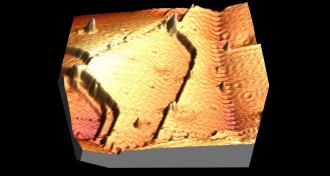 Materials Science
Materials ScienceThe thinnest films of copper look flat, but they aren’t
It turns out that thin films of copper don’t lay flat, a discovery that has implications for computers and handheld electronics.
-
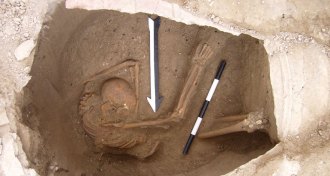 Anthropology
AnthropologyAncient DNA offers clues to the Canaanites’ fate
DNA is painting a more detailed portrait of the ancient Canaanites, who have largely been studied through the secondhand accounts of their contemporaries.
-
 Genetics
Genetics50 years ago, diabetic mice offered hope for understanding human disease
Mice described in 1967 are still helping researchers understand diabetes.
-
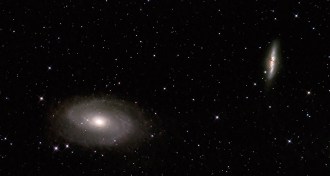 Astronomy
AstronomyHalf of the Milky Way comes from other galaxies
A galaxy may swipe up to half of its atoms from other galaxies, making the Milky Way mostly extragalactic stuff, new simulations suggest.
-
 Plants
PlantsBorrowed genes give mums the blues
Scientists have genetically modified chrysanthemums to be “true blue” for the first time.
-
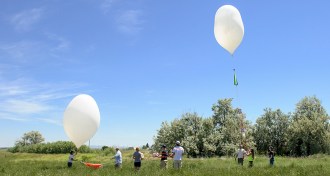 Astronomy
AstronomyBalloons will broadcast the 2017 solar eclipse live from on high
Astrophysicist Angela Des Jardins is coordinating the first-ever livestream of a solar eclipse filmed from balloons.
-
 Earth
EarthExpert eavesdroppers occasionally catch a break
Acting Editor in Chief Elizabeth Quill discusses the many ways we watch, listen and learn about science.
-
 Anthropology
AnthropologyReaders question hominid family tree
Readers sent feedback on hominid origins, fast cameras, slimy sea creatures and more.
-
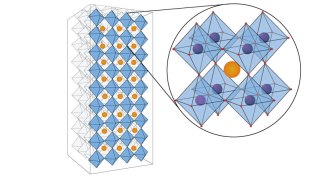 Materials Science
Materials SciencePerovskites power up the solar industry
Perovskites are the latest hot materials in solar energy production.
-
 Planetary Science
Planetary ScienceMore hints of Martian hot springs may hold promise for Mars 2020 mission
An analysis of ridges in a crater of Margaritifer Terra on Mars offers evidence of ancient hot springs and also hints at the potential for finding signs of life.
-
 Quantum Physics
Quantum PhysicsQuantum tunneling takes time, new study shows
A new measurement disfavors the idea that electrons can escape atoms instantaneously.
-
 Health & Medicine
Health & MedicineMost football players who donated their brains to science had traumatic injury
A self-selected sample of 202 deceased football players, the largest to date, finds that the majority suffered from chronic traumatic encephalopathy.